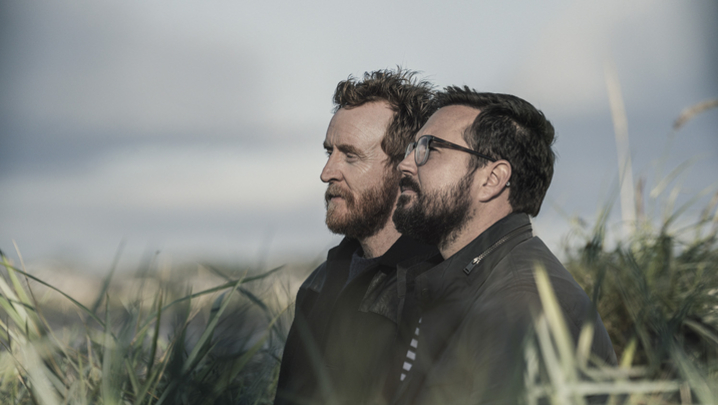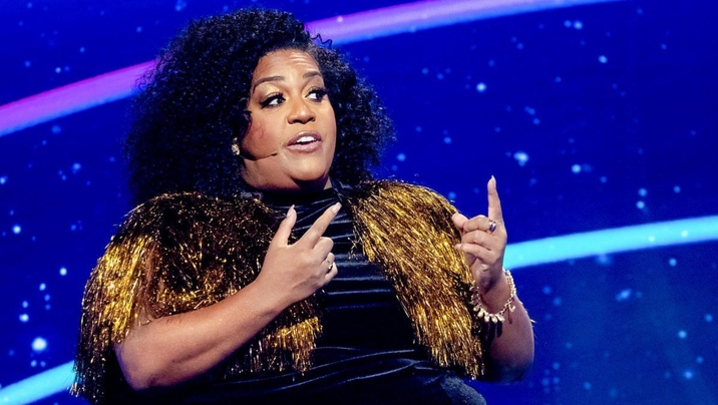Michaela Coel’s new drama I May Destroy You is certain to provoke audiences. She tells Matthew Bell why her ‘vomit drafts’ have a life of their own
Michaela doesn’t skirt issues – she goes straight at them.” Executive producer Roberto Troni is talking about Michaela Coel’s fearless new drama I May Destroy You, which explores sexual consent in contemporary London.
The 12-part BBC One/HBO series is, to an extent, based on personal experience – like her character, Arabella, Coel was sexually assaulted after her drink was spiked, an experience she revealed two years ago while giving the MacTaggart lecture at the Edinburgh International TV Festival.
Coel found the experience of writing I May Destroy You cathartic and, ultimately, liberating. “Anything cathartic is hard, but it was also really glorious. It was horrible, dark and beautiful. I was able to reflect on the pain, which meant I had survived it,” the London-born actor and writer tells Television. “To finish draft after draft and get to the end, sort of metaphorically finding my way out, was a beautiful experience.”
In the series, Arabella is suffering from writer’s block and unable to complete her second book. This isn’t a problem that afflicts Coel, who describes her writing process as akin to producing “vomit drafts”.
It was executive producer Phil Clarke’s confidence in her writing – as head of comedy at Channel 4, he had commissioned her sitcom Chewing Gum – that led Coel to Various Artists Limited, the indie he founded in 2017 with fellow Channel 4 commissioner Roberto Troni and Peep Show writers Sam Bain and Jesse Armstrong.
“It’s the reason I came to Phil. I did my ‘vomit drafts’ for season one of Chewing Gum,” she recalls “and the call was made that I had to find a co-writer. I remember being in Boots and getting the call and the earth fell from beneath me – I was crying in the middle of Boots.
“Phil read it and said, ‘What do you need a co-writer for?’ He understands my babble.”
Coel, Troni and Clarke approached Piers Wenger, controller of BBC drama commissioning, who, without a treatment, let alone a script, snapped up I May Destroy You.
“Amid all the dramas about consent we’ve been pitched in the wake of the #MeToo or Time’s Up [movements], this stood out,” says Wenger, who met Coel when she was making BBC Two drama Black Earth Rising. “Michaela’s way of seeing the world is unlike anyone else’s. That really comes through in the finished show: it’s funny, incredibly idiosyncratic, very personal, but with so much to say about the world.”
The series, adds Wenger, “constantly trips you up and challenges you”.
‘I was able to reflect on the pain, which meant I had survived it’
Coel thinks the “idiosyncratic” content reflects her writing style. “When I write, I don’t plan in advance where I am going,” she says. “Imagine you are walking your dog and your dog is dragging you in all these directions – that’s the script. Sometimes, as I’m typing, my jaw drops because I didn’t know I was going to go [to a particular place].
“I spend a lot of time alone, away from my phone, and I travel. Even if it’s just a train to Kent to sit in a cheap Airbnb, it means my variables are constantly changing. I’m constantly trying to live a life that throws up things I can’t predict.”
Coel drafted and redrafted, using Clarke and Troni as her sounding boards. “We’d question her and talk about different ideas and approaches. She’d go away and rewrite. And we did this process over and over again. Our function was to help Michaela tell her story,” recalls Clarke.
“I was constantly whittling away, responding to their questions, understanding where I wasn’t being clear,” recalls Coel, “and then going back and trying again.”
While scripts were being honed, HBO came on board. The BBC and US network’s versions are identical. “It’s a very modern situation, working to two broadcasters – it ran very swimmingly,” says Clarke. “[They] were respectful of each other; [neither] was trying to elbow their way to the front. There was literally not one bit of argy-bargy.”
Julie Harkin assembled the cast, including Weruche Opia (Sliced) and Paapa Essiedu (Kiri), which reads like a who’s who of up-and-coming black acting talent.
“Julie’s a very established casting director but really has an eye on emerging talent. She and Michaela were talking the same names immediately,” recalls Troni. “We’ve all worked with those casting directors who just pull out the tried and trusted.”
Along with Noughts + Crosses, Steve McQueen’s upcoming Small Axe and the adaptation of Vikram Seth’s novel A Suitable Boy, I May Destroy You is making 2020 “an outstanding year for on-screen diversity” on the BBC, says Wenger. “It’s about opening up the talent pool and showing [BAME] actors that there are opportunities in Britain and at the BBC. We need to earn their trust because I don’t think that comes automatically.”
Coel co-directed with Sam Miller, who helmed Luther. “Sam led the way; he’s a very experienced director and brought visual flair to the show. Michaela was keen to direct but realised it was going to be a learning curve for her. They formed a partnership on set and made it work; they got the best out of each other,” says Clarke.
As creator, writer, star and co-director, Coel describes the task of bringing I May Destroy You to screen as like “creating Mount Everest and then climbing it”.
“While I was learning my lines in the evening, I was also rewriting the script. I was then getting up in the morning, doing my make-up before we began shooting, and then I had to go on set and figure out how a sequence would work and what it would look like.”
Coel says that, during the shoot, “memories of something that was deeply traumatic” were erased by the joyful experience of working closely with the production crew: “I imagine that when you climb Everest you feel this same overwhelming sense of love, euphoria and gratitude.”
The production hired Sex Education’s intimacy co-ordinator, Ita O’Brien, and used closed sets to shoot scenes with explicit sex and sexual violence. It also offered therapeutic support to the cast and production crew.
“Because of the nature of the material, there was a lot of discussion with the cast, even before filming started. There were rehearsals and workshops with Ita,” explains Troni. “In the old days, there were those terrible stories about people turning up on the day and being told, ‘You’re doing a sex scene – take your clothes off.’
“Nothing was sprung on people. There are amazing roles in I May Destroy You, but we didn’t want to put the actors in positions that they were uncomfortable with.”
I May Destroy You is powerful but also frequently disturbing. Is the BBC anxious about its reception? “There is nothing sensationalist about it; it’s rooted in the everyday [world] of dating apps and hook-ups, the things you do in your twenties and thirties,” replies Wenger. “It’s exploring both the fun and the dark side of those experiences. It’s rare that you get in one story the two extremes.
“Michaela shows how society lets down the victims of sexual assault and it feels like uncharted territory. It is strong, there is no doubt about it, but isn’t that what great drama does? It allows us to see the world from fresh perspectives.”
Clarke adds: “There’s nothing gratuitous. If people feel uncomfortable, that’s up to them, but my feeling is that the more honest and braver we are at tackling these… subjects, [the better].”






